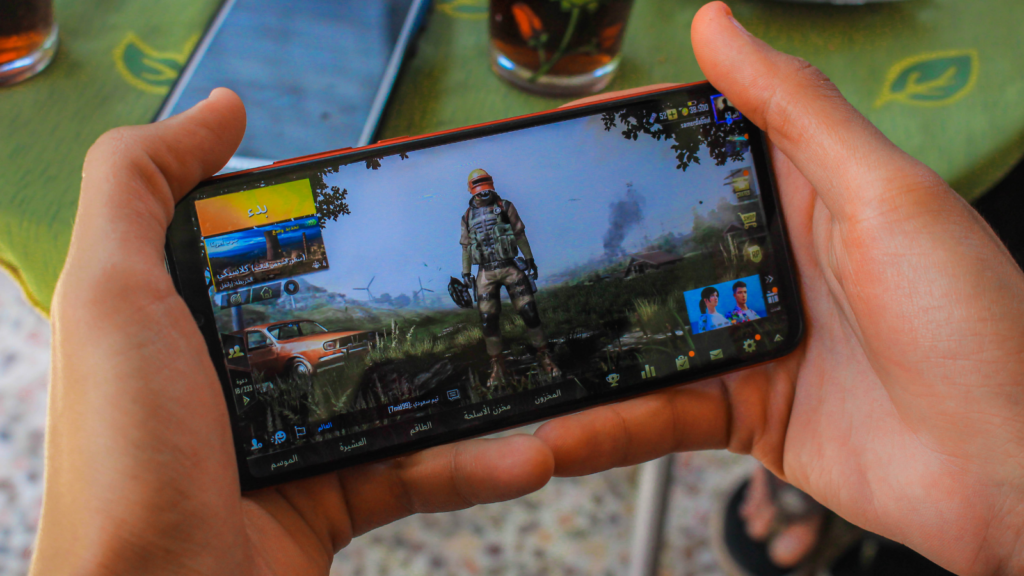More than 40% of the world’s population play video games. But besides being entertaining, digital games are a product. The need to bring in money from players is integral to game design.
A popular method of monetising games is through microtransactions. These are repeated, uncapped in-game purchases: for example, extra content, or ways to make progress in the game easier. These transactions may be made with real money or in-game currency (which is paid for with real money).
Microtransactions are very profitable for the industry. As fewer and fewer mobile games opt for a one-time, upfront purchase model, free-to-play games, which make the majority of their revenue through microtransactions, are proliferating. The global free-to-play mobile games market was estimated at US$73.8 billion (roughly £55.4 billion) in 2020.
With the incentive to drive players to spend being a key facet of game design, it’s important to ask whether microtransactions are being incorporated into games in a way that might be unethical towards gamers.
Governments have been paying attention to microtransactions in digital gaming. One particular form, “loot boxes” (a mystery selection of random rewards), have already been banned or regulated in several countries because of their links to gambling. One large survey, for example, found the more gamers spent on loot boxes, the more likely they were to be problem gamblers.
Currently, in-game purchases are not subject to any specific regulation in the UK. The most relevant existing regulation that might apply to microtransactions is the Consumer Protection from Unfair Trading Regulations 2008, the aim of which is to protect consumers by prohibiting unfair, misleading and aggressive business practices.
Regulation is made harder by the fact that we don’t really know enough about the kinds of microtransactions which operate in digital gaming, and how they might affect players who interact with them.
Read more: How long will you keep playing? The game knows
We asked gamers about their experiences
We wanted to understand what types of microtransactions players encounter. So in our study, we surveyed 1,104 English-speaking adults who played any one or more of 50 different mobile and desktop games.
We asked them what monetisation features they had come across in these games, which they believed to have been unfair, misleading or aggressive (based on the wording of the UK Consumer Protection from Unfair Trading Regulations 2008). We analysed participants’ responses by searching for repeated concepts in the data, and identified 35 problematic in-game monetisation types, which we grouped into eight domains, or themes.

Some of these domains reflect practices which could contravene the 2008 regulations. For example, aspects of two of the domains – predatory advertising and product not meeting expectations – could be classified as misleading. These domains reflect perceptions among our participants that the information presented about a given in-game purchase is often incorrect, incomplete or skewed.
Another domain, in-game currency, could be seen as unfair, because it can make the implications of purchase decisions less clear for players. For example, two of the subcategories we identified under this domain included the perception that in-game currency disguises the actual price, and that multiple currency types within one game cause confusion – therefore making it harder to calculate the true cost.
Some of the subcategories we identified could be regarded as aggressive. For example, aggressive advertising (which falls under the predatory advertising domain) occurs when players are pestered to make purchases so often that it detracts from their enjoyment of the game.
In short, many types of microtransactions in digital games are likely to violate consumer protection regulations.
Read more: Coronavirus: making friends through online video games
Some domains are more subjective, yet many players still raised them as being problematic. For example, players dislike tactics such as pay to win because they create social division. “Anything that makes paying opponents stronger than nonpaying is unfair,” said one participant.
Players also value their freedom of choice as to whether to make a purchase. This is exemplified through the domain called monetisation of basic quality of life: when game elements which players think should be central to the game cannot be accessed without payment. As one participant explained:
Creating an event which has 20 stages, 18 stages of which you can fulfil for free (just spending loads of your time) and for the last two you have to pay in-game currency to get the final reward. This is very very sneaky tactics. Even if you’re notified at the start of the event you still feel like you’re being robbed in plain sight.
Ultimately, the general presence of microtransactions clashed with player ideas about what a game experience should be like – the so-called “magic circle” which is free from financial worries. As one participant said:
Great games ruined by greed, I can’t even think how could a virtual, nonexistent item could cost almost like a used car. Ironically or sadly, the same company who made my favourite game is also the one responsible to have brought in this system.
These issues would be harder to regulate than the more concrete features, such as multiple currency types or aggressive advertising, which could potentially be covered by consumer protection.
So what can be done?
As our research is based on self-reporting, we must acknowledge that it may be affected by biases. More research into how microtransactions affect players and their gaming experience is needed to design appropriate regulations. In the meantime, we can offer suggestions for how games companies can incorporate microtransactions ethically. Fundamentally, game play should be the same with and without payment – players must retain their choice.
Further, developers should not include game elements which are solely designed to get players to spend money. The value of a product must match the amount paid for it. If game designers work with researchers and players to monetise ethically, we can create a gaming industry that works for everyone.
- is a PhD student in Video Game Effects, University of York
- This article first appeared on The Conversation




